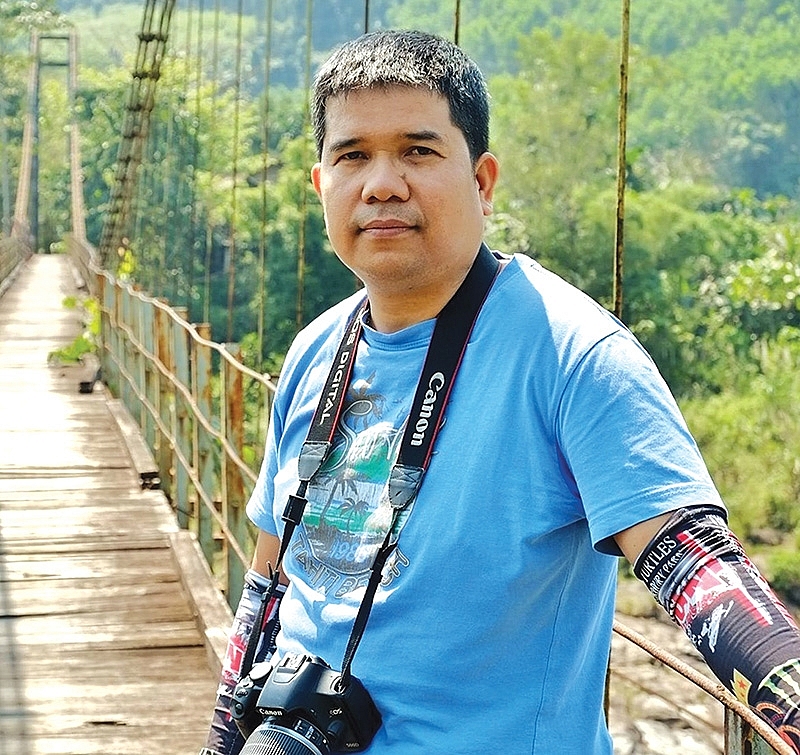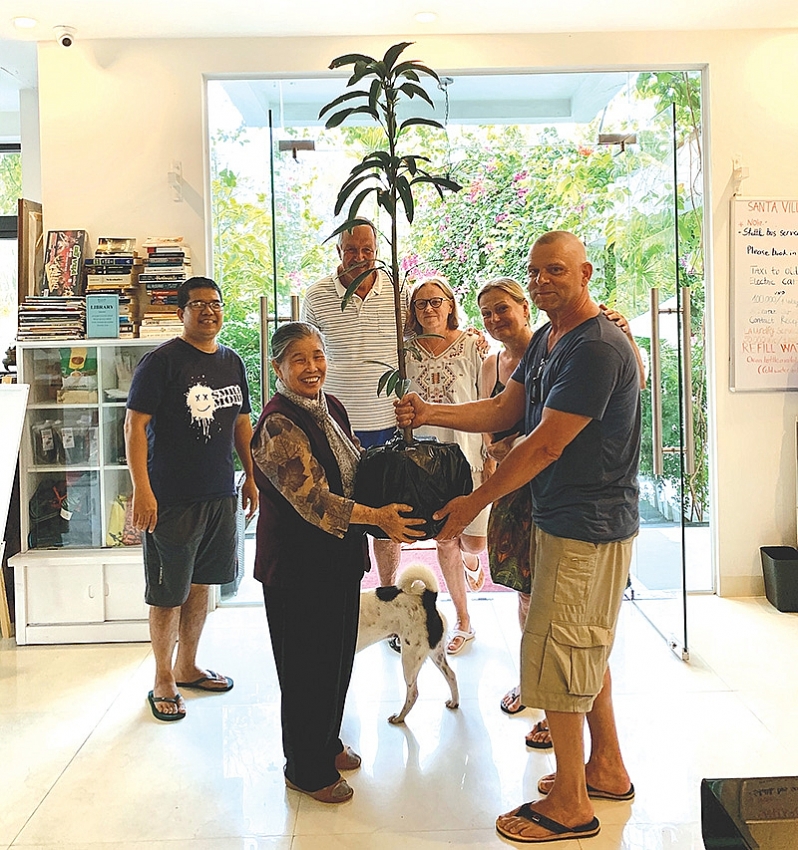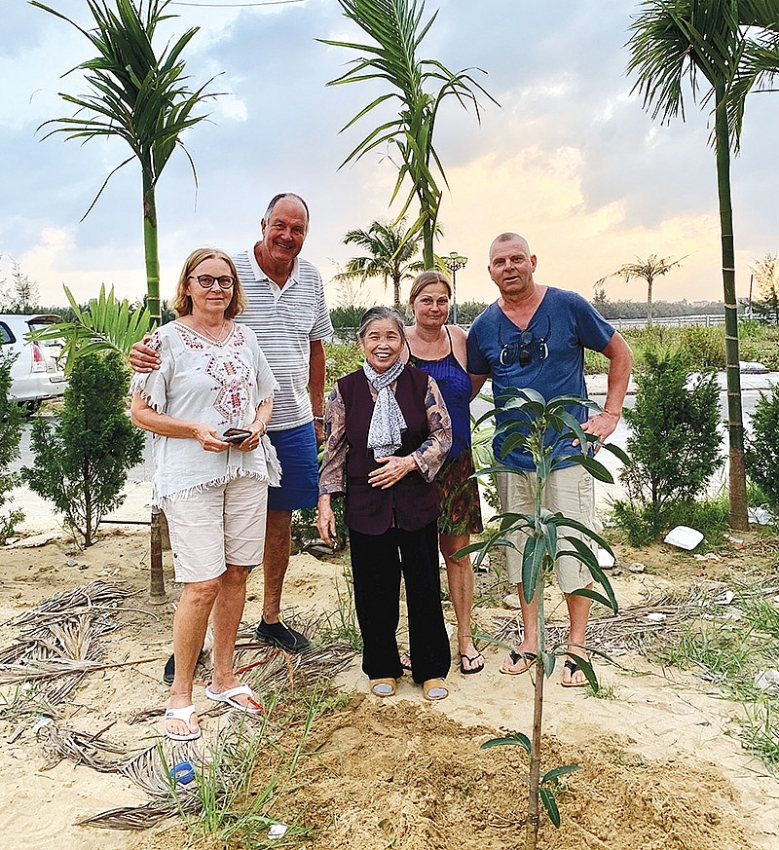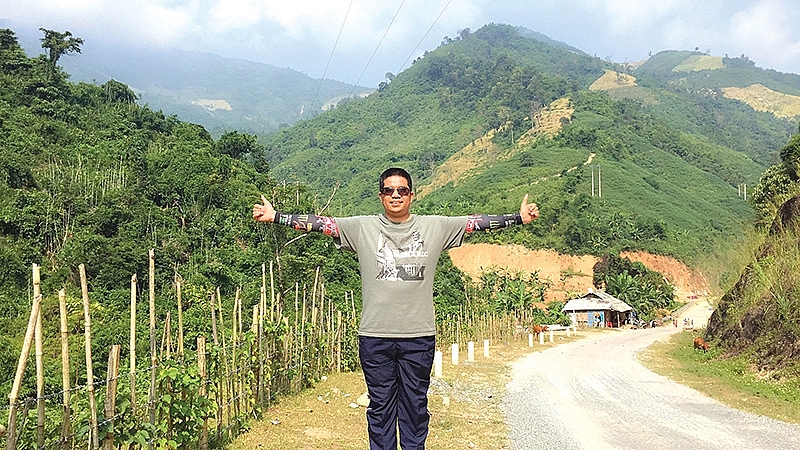Insight into a recovering hospitality industry
 |
| Le Quoc Viet, CEO of hoteljob.vn |
You had operated two hotels during the financial crises in 2008 and 2012. What are the opportunities and valuable lessons for tourism businesses in times of crisis?
At the end of 2007, when I was a manager at Flamingo Dai Lai Resort, I decided to quit my job and rent an old hotel in Hanoi’s Trieu Viet Vuong Street Hanoi to renovate it into a new hotel specialising in serving Japanese guests. The rent was then $6,000 a month. However, the initial capital contribution of the shareholders was only enough to deposit one month of the rent.
The investment cost and the renovation of the hotel was about VND3 billion ($130,000). At this time, the financial crisis in 2008 spread to Vietnam, causing interest rates of banks to rise by 22 per cent per year. Luckily, in the first month after the opening, the hotel reached nearly 70 per cent room occupancy. Despite the crisis, Japanese experts still stayed with us regularly and for a long-term period. After more than two years of working with high responsibility, we have been able to pay off our bank debts and the crisis has passed by.
With the support of our customers, we started thinking of a plan to open a second hotel. In late 2011, I signed a contract to rent an office building near the first hotel, which was eight floors high and came for the price of $8,000 a month. But again, the 2012 economic crisis happened and interest rates of banks went up like before. However, thanks to targeting customers and products for Japanese experts, the hotel’s average room occupancy rate stayed over 90 per cent.
Though the sales were good at the time, we had to cope with rents and other investment costs which were borrowed from the banks. Interests and principal repayments were very high, coming along with many other expenses. At this moment, a foreign partner wanted to buy back the investment of both hotels so I decided to sell. Therefore, since mid-2012, I no longer own any hotel but just wholeheartedly take care of the e-commerce startup hoteljob.vn and prepare for the establishment of Santa Sea Hoi An Villa.
Experiences and lessons learned after these two hotels make me realise that in difficult circumstances, we can always find new ways or ideas. It is important to always think and explore the most feasible and optimal solutions. Being active and flexible in every situation is also a very important factor that helps investors in this risky field to overcome all difficulties. In addition, we also need to pay attention to the practical effectiveness of the investment.
 |
How do you evaluate the damage during this pandemic compared to both previous crises and do you think one could have prepared something?
The pandemic came completely unexpected and perhaps not a single hotel would have imagined the situation would be so bad and happen so fast. It paralysed the entire tourism and hotel industry not only in Vietnam but globally. The tourism industry will now need a longer recovery time. However, the good news is that if the pandemic is soon controlled, the value of the properties and income of the accommodation businesses will be preserved and they can quickly recover when the tourist market starts to come back to life after the crisis.
Fortunately, from the beginning of this year, Santa Sea Villa already has a good number of customers including many long-term holiday guests from Europe. We always encourage and support them. Our guests were also optimistic until late March a series of flights were cancelled and many countries closed their borders. We have enthusiastically assisted the guests to change their flights and enable them a safe return home. When Vietnam stopped granting visas to international visitors and later implemented social distancing, we served those who did not want to return to their country and were stuck in Hoi An. As such, we offered a programme for long-term rents for a month or more with a flat price instead of short-term daily rents as before, both to support guests and to receive additional revenue.
 |
How long will the hotel industry in Hoi An and Vietnam in general need to be able to operate normally again?
In addition to the overall impact on tourism, the recovery of hotel industry depends on the market of each hotel.
Hotels specialising in business travellers may recover faster and stronger due to the need for trade, investment, and business. After them, hotels which specialise in serving tourists will also recover.
The customer market that each hotel is exploiting is also an important factor. The domestic market will definitely recover first because the demand for travel of the people is still high.
If Vietnam announces the end of the pandemic and opens again to international visitors, it is likely that the international tourist market in countries rated as safe as Australia and New Zealand will come first, followed by Southeast Asian countries and China, South Korea and then Europe and the US.
Hoi An’s tourism will be affected more heavily than many other localities due to the majority of visitors coming from South Korea, Europe, and the US, which are still seriously affected by the disease. Hoi An also needs to be flexible in redirecting domestic visitors with new products, focusing on the strength of the cultural and ecological depth.
What are your plans to bring Santa Sea Hoi An Villa back into operation?
In the short term, we will definitely have to rely on domestic visitors. I have built a stimulus programme with prices equal to only 50 per cent of the previous ones and agreed to allow guests to cancel and book flexibly. The hotel also actively promotes itself on forums and provides free support for tourists to book flight or trains trickets, guides, and other services. We also shift to more economical services such as serving breakfast sets instead of offering a buffet.
Also, we co-ordinate with the Quang Nam Tourism Association to prepare large-scale stimulus programmes to attract domestic tourists to the central provinces. We are optimistic that in the long term Santa Sea Hoi An Villa will receive more requests and orders for new travel products from European and American partners.
 |
Experts say that after the pandemic is over, many private and small hotels will be merged or disappear completely. Do you think it is the right time for private hotels to expand?
This is a difficult time for many businesses but also an opportunity for others. I think businesses need to evaluate and reconsider their investment plans. Even without the disease, the supply in many tourist destinations such as Halong, Danang, Hoi An, Nha Trang, and Phu Quoc is very redundant. This is the time for investors to look for new directions for their projects.
For many businesses, the crisis offers lessons about prevention and the actual effectiveness of a project. Moreover, it is also an opportunity for businesses with strong finances to acquire weaker ones and for startups to buy or rent hotels at a much lower cost. However, these startups should be careful with their cash flow and competitive advantage because the crisis is unlikely to end in the short term.
What the stars mean:
★ Poor ★ ★ Promising ★★★ Good ★★★★ Very good ★★★★★ Exceptional
Themes: Vietnam Tourism Upswing
Related Contents
Latest News
More News
- Tides of Heritage: A Tet speciality at InterContinental Phu Quoc Long Beach (January 20, 2026 | 12:08)
- Muong Thanh launches Lunar New Year gifts inspired by tradition (January 16, 2026 | 16:41)
- The Grand Ho Tram seeks responsible entertainment with pilot casino access (January 16, 2026 | 10:56)
- Ocean Resort by Fusion Quy Nhon launches Lunar New Year 2026 package (January 15, 2026 | 11:11)
- Regent Phu Quoc announces general manager appointment (January 15, 2026 | 11:06)
- Fusion to debut two landmark hotels in early 2026 (December 26, 2025 | 11:46)
- Pan Pacific Hanoi unveils festive season of light and music (December 15, 2025 | 18:22)
- JW Marriott Hotel & Suites Saigon unveils festive initiatives (December 12, 2025 | 15:12)
- Festive magic by nature unfolds at JW Marriott Cam Ranh Bay Resort & Spa (December 11, 2025 | 18:17)
- The Reverie Saigon presents festive programme (December 11, 2025 | 18:15)

 Tag:
Tag:



















 Mobile Version
Mobile Version